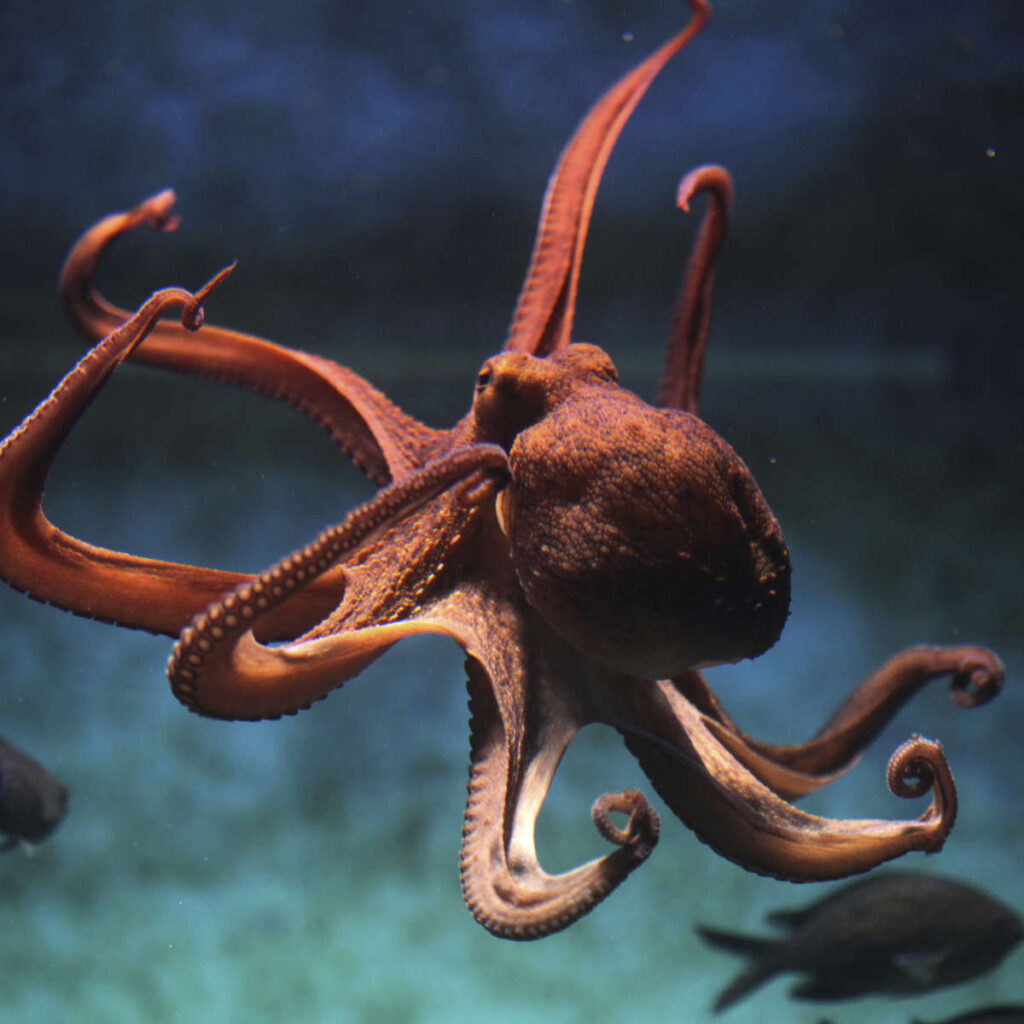Last Reviewed and Updated on July 10, 2022
Octopuses are fascinating creatures. They are known for their intelligence and ability to change colors. They are also known for being able to survive outside of water for short periods. But how long can they stay out of water? And how are these sea animals able to survive on land in the first place?

What is an octopus, exactly?
An octopus is a soft-bodied, eight-limbed mollusk of the order Octopoda. Around 300 different species of octopus are recognized, and some of their closest relatives are squids, cuttlefish, and nautiloids. All octopus species live in saltwater.
Like other cephalopods, an octopus is bilaterally symmetric with two eyes and a beak, with its mouth at the center point of its eight limbs (traditionally called “arms,” not tentacles).
The soft body can rapidly alter its shape, enabling octopuses to squeeze through small gaps. They trail their eight arms behind them as they swim. The arms are muscular and have suckers on the inner surface.
Octopuses have a complex nervous system and excellent sight. They are among the most intelligent and behaviorally diverse of all invertebrates.
Want to learn even more? Browse our list of cool facts about octopuses.
Can octopus live outside water?
The first thing that needs to be said is that these animals are made for living in the sea. While they can survive on land for a while, this isn’t their natural environment, and they can’t live on land. They need to be in the water to survive. They have gills and don’t have lungs, so they can’t breathe air.
Most octopuses can crawl short distances on land, but one species, in particular, the Abdopus aculeatus, does it routinely.
Their strong muscular arms allow them to pull themselves out of the water and walk on land. They will go on land to hunt, especially in areas where there are many tidal pools (water left behind when the water recedes during low tide). These hunters will go from tide pool to tide pool in search of their prey, primarily crabs. What’s more, they can be pretty agile.
How can they do it, and how long can an octopus live outside of water?
Octopuses don’t have lungs, they have gills, but gills aren’t the only way the octopus gets their oxygen from.
Octopuses are able to absorb oxygen from the water through their skin, a process that is called passive diffusion. The amount of oxygen an octopus gets from passive diffusion is from about a couple of percent to up to 40%, depending on how active it is.
So as long as its skin is wet, an octopus can breathe to some extent. When they get out of the water, they don’t idle around – they do what needs to be done and return to the water. They can last, breathing until the water dries, a few minutes out of the water (the time depends on weather conditions as well).
The longer they are out of the water, the more they risk damaging their gills, so they will keep their trips short.
Think this is cool? Be sure to check our list of weird animal facts.
